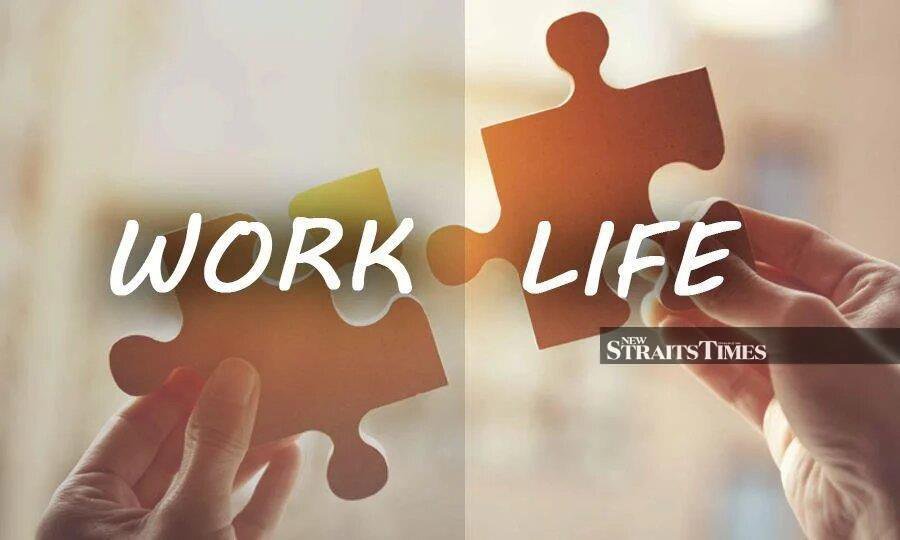OFTEN, people want to achieve a better balance between their work life and their personal life so that work does not take up the vast majority of their time.
However, the term itself is confusing because our careers and personal lives do not always exist in distinct domains.
In response, work-life integration, or the synergistic blending of our personal and professional responsibilities, is more appropriate an aim. Work is simply one part of our lives, which needs to be considered alongside other important concerns, such as our home and family lives, our community, and our personal well-being.
Rather than dealing with two competing sides, work-life integration is about overlapping interests. The balance is a constant negotiation about how, and where, you spend your time.
Improving your life-balance can potentially improve your overall well-being. Your physical, emotional, and mental health will all improve when you get this balance right. There are numerous studies that are readily available that show how losing this balance leads to serious health issues like sleep deprivation, depression, alcoholism, and heart disease.
Here are some things that I do to maintain some balance in my life.
I make time to take breaks and evaluate, regularly. Taking time out to understand how the various parts of your life are impacting one another is a necessary step in developing a life integration.
Ask yourself whether you are spending enough quality time doing what you really want. Are you committing enough time and energy to people or things that are meaningful to you? Do you feel that your professional or personal goals are aligned?
I find that as I reflect on these questions, writing or journaling my thoughts are useful. It gives my reflections direction. Once I do this, I am able to adjust and ensure that I get clarity on my situation. If you do not do some in-depth thinking, you cannot make it better.
Doing the above exercise will give you a better sense of what you would like to adjust, and this will help you with prioritising. It will indicate if you doing enough of what matters to you. It will help you figure our where you can make compromises, and where you should not. And, the reflection will show you if you have already made too many concessions.
It is vital to take alternative actions to make sure that you are devoting enough time and energy to your goals and relationships. Familial and spousal relationships are central. More often than not, because we so consumed with our work, or our "dramas," we forget to pay attention to these important people around us. These are the most valuable people who support and comfort us in our moments of difficulty
Next, learn quickly to integrate your responsibilities. You can do this by focusing on managing your time effectively, and efficiently. Once you figure out what your priorities are, it's important to work out how to manage your time better.
Think about where you devote the most time, right now and look at possibilities for adjustment. You can "delegate" your time as a way to focus on one area at a time, or use a system to establish your priorities when new tasks pop up, especially if they are unexpectedly. Doing this will boost your productivity and well-being.
Always be quick to establish boundaries. Do not simply agree to do things without thinking it through.
Establishing boundaries is a crucial part of your time management. And, communicating those boundaries are important. If you can no longer respond to emails promptly after hours because you are with your family, communicate this to your team. They will need to know.
You will have to set physical, emotional, and time boundaries. Start by setting small boundaries, and expand from there. Learn more about how to set better boundaries, especially with your work schedules.
Remember that there will always be something you will need to finish up at work. But be cognisant about the "price" you have to pay. Life is a series of tradeoffs. As long as you are aware of the consequences of doing something, and not engaging in it unconsciously, you will be able to manage your boundaries.
Whatever the actions you decide are needed to create a good life balance, though, please be conscious of the fact that you will need to continuously refine it over time. Your purpose will alter from time to time, and your actions must be match this.
In short, you will achieve life balance when you have enough time to pursue both work and personal interests that you love. However, when you feel as if one side of your life is using up too much of your energy, you can become stressed, your productivity can fall, and your personal relationships can become strained.
To bring more balance in your life, audit how you spend your time. Do you do this?
*The writer is managing consultant and executive leadership coach at EQTD Consulting. He is also the author of the national bestseller 'So, You Want To Get Promoted?'






